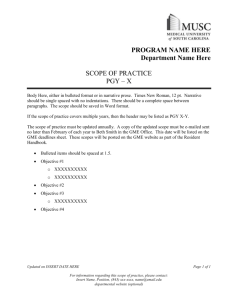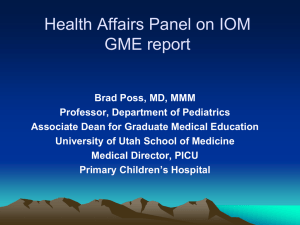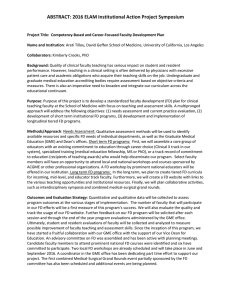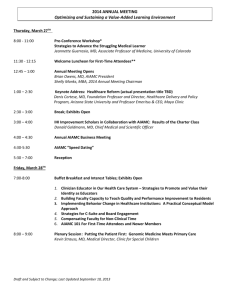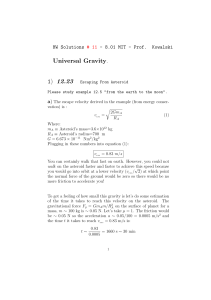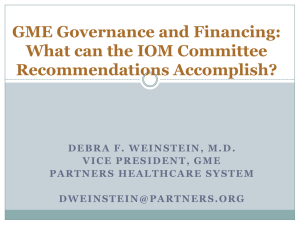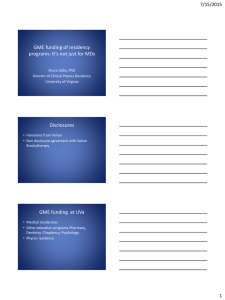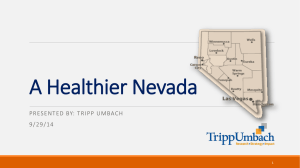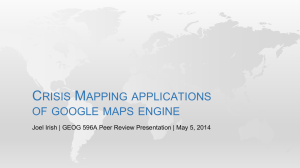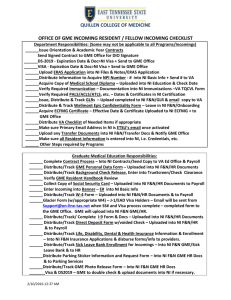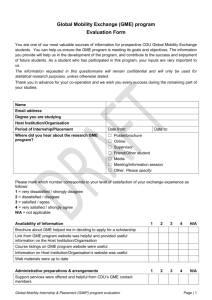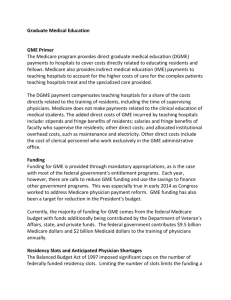Based, Not for Profit Consortium
advertisement
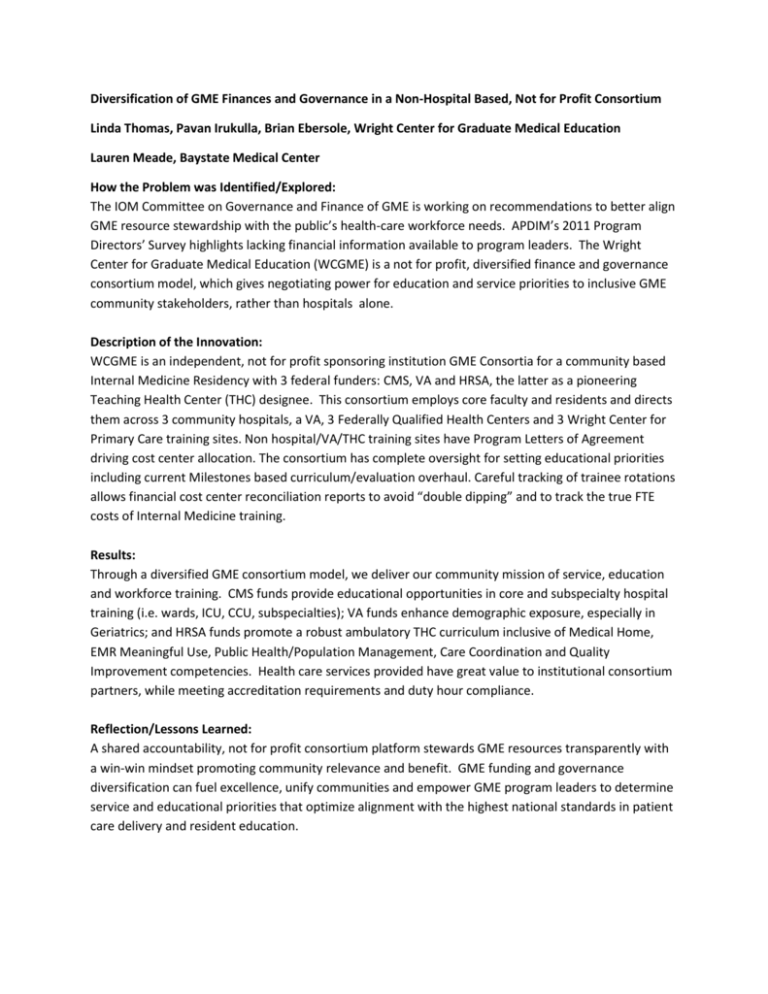
Diversification of GME Finances and Governance in a Non-Hospital Based, Not for Profit Consortium Linda Thomas, Pavan Irukulla, Brian Ebersole, Wright Center for Graduate Medical Education Lauren Meade, Baystate Medical Center How the Problem was Identified/Explored: The IOM Committee on Governance and Finance of GME is working on recommendations to better align GME resource stewardship with the public’s health-care workforce needs. APDIM’s 2011 Program Directors’ Survey highlights lacking financial information available to program leaders. The Wright Center for Graduate Medical Education (WCGME) is a not for profit, diversified finance and governance consortium model, which gives negotiating power for education and service priorities to inclusive GME community stakeholders, rather than hospitals alone. Description of the Innovation: WCGME is an independent, not for profit sponsoring institution GME Consortia for a community based Internal Medicine Residency with 3 federal funders: CMS, VA and HRSA, the latter as a pioneering Teaching Health Center (THC) designee. This consortium employs core faculty and residents and directs them across 3 community hospitals, a VA, 3 Federally Qualified Health Centers and 3 Wright Center for Primary Care training sites. Non hospital/VA/THC training sites have Program Letters of Agreement driving cost center allocation. The consortium has complete oversight for setting educational priorities including current Milestones based curriculum/evaluation overhaul. Careful tracking of trainee rotations allows financial cost center reconciliation reports to avoid “double dipping” and to track the true FTE costs of Internal Medicine training. Results: Through a diversified GME consortium model, we deliver our community mission of service, education and workforce training. CMS funds provide educational opportunities in core and subspecialty hospital training (i.e. wards, ICU, CCU, subspecialties); VA funds enhance demographic exposure, especially in Geriatrics; and HRSA funds promote a robust ambulatory THC curriculum inclusive of Medical Home, EMR Meaningful Use, Public Health/Population Management, Care Coordination and Quality Improvement competencies. Health care services provided have great value to institutional consortium partners, while meeting accreditation requirements and duty hour compliance. Reflection/Lessons Learned: A shared accountability, not for profit consortium platform stewards GME resources transparently with a win-win mindset promoting community relevance and benefit. GME funding and governance diversification can fuel excellence, unify communities and empower GME program leaders to determine service and educational priorities that optimize alignment with the highest national standards in patient care delivery and resident education.
